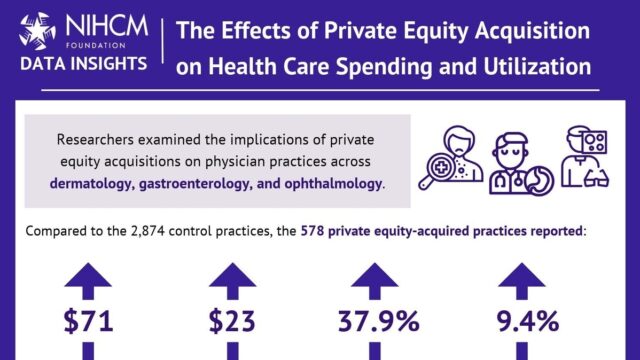Over the past decade, private equity firms have been increasingly investing in the healthcare sector, rapidly acquiring physician practices and hospitals. In the United States alone, more than $750 billion has been invested by private equity firms into healthcare over the last 10 years. This trend has not only drawn attention and concern from federal regulators and healthcare professionals but also sparked discussions about its potential consequences for patient safety and well-being. This article delves into the growing influence of private equity in the healthcare sector and its implications.
Regulatory Scrutiny on Private Equity Investments
The U.S. Department of Justice and Federal Trade Commission have been closely scrutinizing the private equity model, especially the roll-up transactions. Concerns have been raised about potential violation of antitrust laws, negative impacts on competition and innovation, and the possibility of reduced access and quality of care in the long term. Private equity firms are now being urged to take note of the regulatory interest and accompanying risk when making investment decisions.
Private Equity and Orthopedic Practices
Private equity acquisitions are not limited to hospitals and general practices. They have extended their reach to specialty practices such as orthopedics. Some orthopedic surgeons, however, have expressed concerns about the sustainability and benefits of this trend. The shift from private practice to being employed by private equity-owned entities is seen as potentially detrimental to the quality of surgical care provided to patients.
Expansion Through Acquisitions
Private equity-backed healthcare companies are also expanding through acquisitions. An example of this is Premier Radiology Services, which recently acquired NationalRad, a leading provider of subspecialized teleradiology services. With backing from private equity firm Grovecourt Capital Partners, Premier Radiology is set to increase its clinical capacity and diversify its service offerings.
The Downside of Private Equity Investment: A Case Study
Steward Health Care’s relationship with private equity serves as a cautionary tale. After being purchased by Cereberus Capital Management and later selling its real estate assets, Steward Health Care is now grappling with financial repercussions. The health system is going through a significant equity partner acquisition process, amid low reimbursement rates and the impacts of the COVID-19 pandemic. Studies have also shown an increase in hospital-acquired infections by 25% among Medicare patients at private equity-owned facilities, adding to the concerns.
Private Equity in Digital Health
Even though private equity investment in the healthcare industry has seen substantial growth, the digital health sector has not quite lived up to expectations. The COVID-19 pandemic has further impacted digital health investments, although it has led to a resurgence of health IT M&A activity. Despite the existing valuation gap, investors appear to see opportunities at these valuations.
Private equity’s increasing involvement in healthcare has undeniably brought financial support to struggling providers. However, the potential for cost-cutting measures, staff layoffs, and decreased quality of care raises concerns. As this trend continues to evolve, it is crucial for regulatory bodies, healthcare providers, and patients to stay informed and vigilant.




